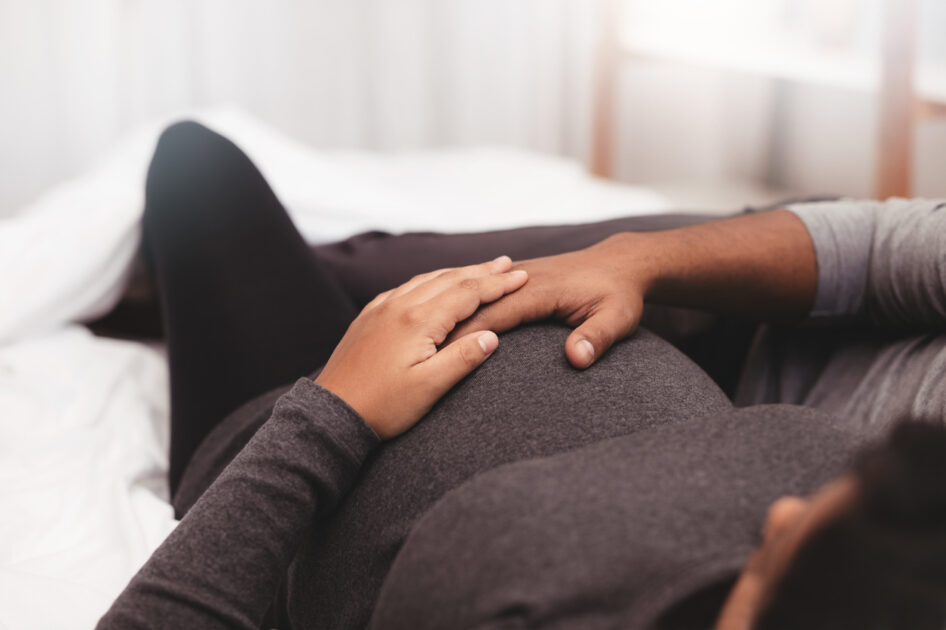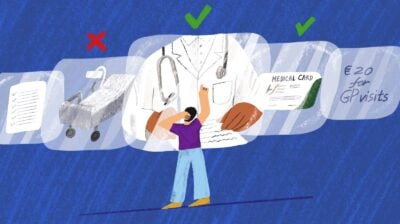The professionals you may come into contact with when pregnant
Guide to the people and services you’ll come into contact with when expecting a baby.

If you are pregnant or are already a parent, you may need help and support from a variety of professionals. Figuring out ‘who’s who’ and what exactly they do can be quite confusing. So here’s our guide to the maze of medical people and other services you might come across.
General Practitioner (GP)/Family Doctor
A GP or doctor is usually your first port of call when you are pregnant. They will give you personal and continuing care. If you haven’t got a GP of your own already, make sure you get a GP whose surgery is easy to travel to when you’re looking for a new one. Ask someone to recommend a doctor or look up doctors in your area. You can contact the doctor’s surgery to ask to go on their patient list.
Antenatal Clinic
This is the clinic in the maternity hospital where you’ll go for check-ups during your pregnancy. Your doctor will usually make the first appointment for you, or you can do it yourself by phone or by dropping in as soon as you know you’re pregnant.
Antenatal Classes
These are special classes usually run by the maternity hospital to help you prepare for the birth of your baby. They are usually free and can be booked through the hospital or the antenatal clinic. Ask at the hospital if they offer special classes for young parents. You’d usually go near the end of your pregnancy for about four to six classes. If you are working, you can go to these without losing any pay.
Obstetrician/Consultant
An obstetrician is the doctor who is in charge of your care at the maternity hospital during pregnancy and labour. Your GP will usually book you into the maternity hospital under the care of a particular obstetrician and her/his team.
Midwives
These are the nurses in the maternity hospital and antenatal clinics. They will care for you during your pregnancy, while your baby is being born and afterwards while you’re still in hospital.
Social Welfare Officers
Social Welfare Officers (SWO) are part of the Department of Social and Family Affairs and are based at the Social Welfare Local Office. You can apply to them for payments such as Jobseekers Assistance/Benefit, Maternity Benefit, One-Parent Family Payment (OFP) and Family Income Supplement. You can also pick up application forms for Maternity Benefit and One-Parent Family Payment at your local post office and send them in directly.
Public Health Nurses
These nurses are based in local health centres and are a fantastic help for new parents. They can give you lots of advice about feeding and caring for your baby. A public health nurse will also visit you when you get home from hospital with your baby. She will do regular check-ups on your baby to make sure s/he is doing okay. You can also bring your baby to the public health nurse in your local health centre if you need some support or information.
Social Workers
Health Service Executive (HSE) social workers are part of the health service and they work with families who are having difficulties. They are there to work with you and to provide help and support if you need it.
Medical Social Workers
These are social workers based in maternity hospitals. It can be really useful to check in with them, as they can offer important information and advice on money matters, form filling, birth registration etc.
Community Welfare Officers
Community Welfare Officers (CWO) are part of the local Health Service Executive (HSE) and are based in Local Health Centres. You can apply to your local CWO for Rent Supplement, Back to School Clothing and Footwear Allowance, Supplementary Welfare Allowance and/or Exceptional Needs Payments (for example for a cot or buggy for the baby). You may need to apply for Supplementary Welfare to keep you going after the baby is born while you wait for your One-Parent Family Payment to come through. Contact your Local Health Centre to find out when the CWO is available.
Remember, there are friends and family around you who can help too. Don’t be afraid to reach out and ask for help if you need it.
Content developed by Treoir the National Information Centre for Unmarried Parents.
Need more information, advice or guidance?
We offer information, advice and guidance about the issues that matter to you. Our online Youth Information Chat service is for 16 to 25 year olds and is available Monday to Friday, 4pm to 8pm (excluding Bank Holidays).






